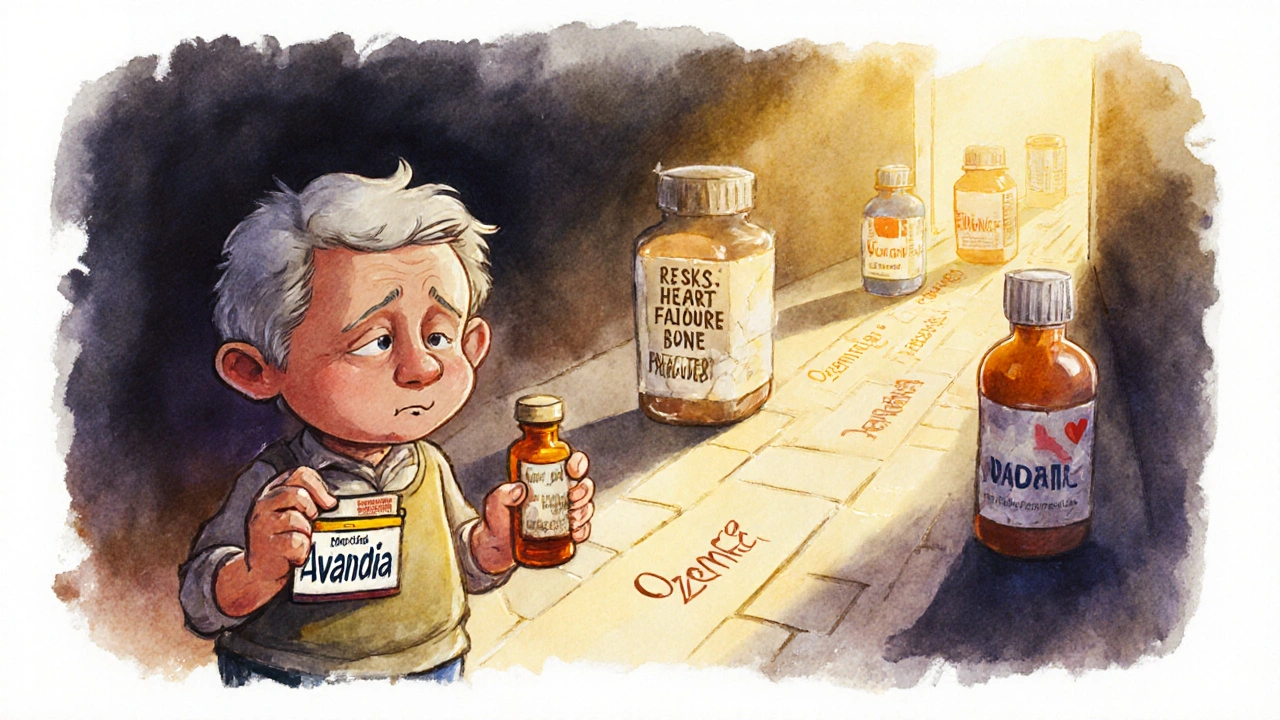Diabetes Medications: What Works, What to Avoid, and What’s New
When you’re managing diabetes medications, drugs used to control blood sugar in people with type 1 or type 2 diabetes. Also known as antihyperglycemic agents, these aren’t just pills you take—they’re tools that shape your energy, appetite, and long-term health. Too many people think all diabetes meds are the same, but that’s not true. Some help your body use insulin better, others stop your liver from dumping out too much glucose, and some even make your pancreas produce more. The right one for you depends on your weight, kidney function, how tired you feel, and even your budget.
Metformin, the most common first-line drug for type 2 diabetes. Also known as Glucophage, it’s been around for decades because it works, it’s cheap, and it doesn’t make you gain weight. But it doesn’t work for everyone—some people get stomach issues, and others just don’t respond. That’s where sitagliptin, a DPP-4 inhibitor that helps your body keep insulin levels steady after meals. Also known as Januvia, it’s often added when metformin isn’t enough. Then there’s insulin, the hormone your body should make but doesn’t, or doesn’t make enough of. Also known as injectable glucose control, it’s not a last resort—it’s often the most effective option, especially if you’re losing weight, feeling exhausted, or your A1C is sky-high. These aren’t just random drugs. They’re part of a system. Some lower blood sugar fast. Others help you feel less hungry. A few even protect your heart or kidneys. But none of them fix your diet, your sleep, or your stress. That’s why the best results come from mixing the right meds with real lifestyle changes.
What you’ll find below isn’t a list of every drug ever made. It’s a practical collection of real comparisons—what works better, what’s cheaper, what causes fewer side effects, and what people actually stick with. You’ll see how sitagliptin-metformin combos fight fatigue, how newer options stack up against old standbys, and why some meds are better for certain bodies than others. No marketing. No fluff. Just clear, honest talk about what these pills do, who they help, and when you might want to try something else.
Avandia (Rosiglitazone) vs Alternatives: What You Need to Know in 2025
- Keith Ashcroft
- |
- |
- 12
Avandia (rosiglitazone) is rarely used today due to serious heart and bone risks. Discover safer, more effective alternatives like metformin, SGLT2 inhibitors, and GLP-1 agonists for type 2 diabetes management in 2025.
View more
